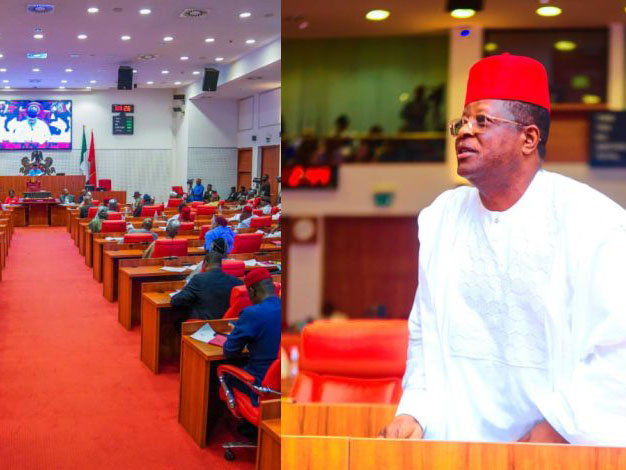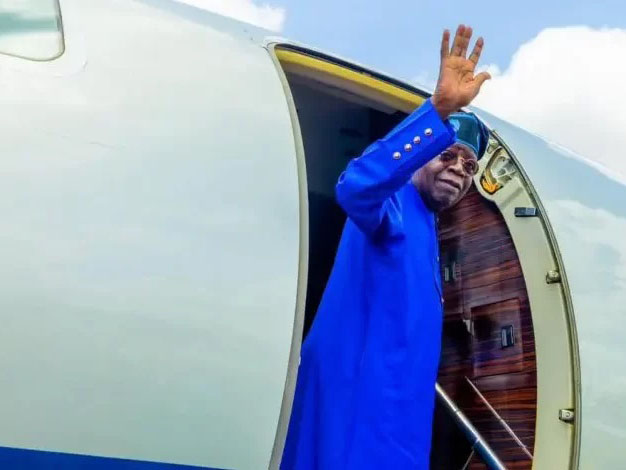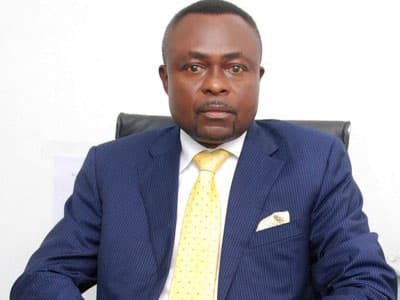The Senate has summoned Minister of Works, Senator David Umahi, to explain the abandonment of a section of the Ogbomoso-Oyo Road by the contractor responsible for the project. The upper chamber instructed the Senate Committee on Works, led by Senator Barinada Mpigi (PDP, Rivers South-East), to urgently call the Minister to clarify the reasons behind the project’s neglect.
Lawmakers also urged the Federal Government to promptly instruct the relevant authorities to complete the rehabilitation of the old Ogbomoso-Oyo Road to prevent further adverse incidents.
These resolutions were prompted by a motion from Senator Abdulfatai Buhari (APC, Oyo North), the Chairman of the Senate Committee on Aviation. He stated, “The Senate notes that in the past month, the residents of Ogbomoso have faced an unprecedented crisis due to a tragic petrol tanker accident on the road. This incident caused significant traffic congestion, left some residents homeless, disrupted economic activities, and claimed innocent lives.”
Senator Buhari expressed concern that the road, which is less than 500 meters long, has become a death trap, responsible for numerous accidents. He noted that over ten accidents have occurred in just a few days, resulting in fatalities, injuries, and severe impacts on businesses, including the spoilage of perishable goods from the north and delays in shipments worth millions of naira from ports and companies.












